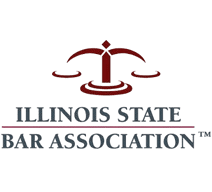





Have you ever wondered if buying that fake designer handbag or knock-off electronic gadget could get you into serious legal trouble? The allure of counterfeit goods is strong, with their tempting low prices and seemingly identical appearance to the real thing. Yet, beneath the surface of these tempting deals lies a world of legal and ethical consequences.
Purchasing counterfeit goods for personal use is not necessarily a federal crime, but it’s certainly not without its risks. While federal law doesn’t forbid individuals from buying counterfeit items, selling or trafficking these goods can result in penalties, including hefty fines and prison time. Common counterfeit items include designer clothing, electronics, and even pharmaceuticals, reflecting a wide scope of potential hazards to consumers and industries alike.
Moreover, the impact on the economy and public safety is substantial. Counterfeit goods not only undermine legitimate businesses and intellectual property rights but can also pose serious health and safety risks. The knock-off electronics you buy might not meet U.S. safety standards, and fake jewelry could contain dangerous levels of toxic metals that could cause significant harm.
Let’s dive deeper into the hidden dangers and legal ramifications of counterfeit goods to better understand why these bargains may not be worth the risk.
Federal laws on counterfeit goods are strict and detailed. The primary federal law in the United States that covers counterfeit goods is the Trademark Counterfeiting Act of 1984. It provides for both civil and criminal penalties against manufacturers, distributors, and sellers of counterfeit items.
One main provision, 18 USC § 2320, focuses on trafficking in counterfeit goods or services. Under this section, trafficking goods or services and intentionally using a counterfeit mark is a criminal offense. These counterfeit marks are an unauthorized reproduction of a registered trademark, making them illegal.
Federal jurisdiction often covers large-scale operations and cases crossing state lines, while state jurisdiction often handles smaller cases. In Illinois, counterfeiting may involve fake currency, fraudulent identification cards, and counterfeit products.
Our focus is on federal laws, but differences exist, and each case might fall under different authorities. For those in Illinois facing these issues, consulting an Illinois Federal Criminal Defense Lawyer can provide specific guidance.
According to the U.S. Department of Justice, purchasing counterfeit products for personal use is not prohibited by federal law. However, selling or trafficking counterfeit items carries significant legal consequences. Different aspects, such as intent and knowledge of the counterfeit nature of goods, significantly affect whether buying these items becomes a federal crime.
If you knowingly buy counterfeit goods, it indirectly funds criminal enterprises and illegal activities such as forced labor and human trafficking, as stated by U.S. Customs and Border Protection. While personal use isn’t a crime, supporting illegal activities and trafficking them certainly crosses legal boundaries.
This is why agencies like the U.S. Immigration and Customs Enforcement work hard to prevent the spread of counterfeit goods, aiming to protect both consumers and legitimate businesses.
When you purchase counterfeit goods, you might not realize the serious legal consequences you could face. Knowingly trafficking counterfeit goods can lead to severe penalties, including fines and imprisonment, especially for repeat offenders.
First-time offenders can face up to ten years in prison and a $2 million fine. If the counterfeit goods cause serious bodily injury or the offense involves counterfeit military goods or drugs, the penalties can be more severe. It can result in a $5 million fine and a prison term of up to twenty years. The penalty is similar for second-time offenders.
This shows how the law handles selling or distributing these items much more harshly than mere possession.
Customs and Border Protection (CBP) agents can seize counterfeit goods upon entry into the country. These items are often destroyed, leading to financial losses. Being associated with counterfeit merchandise can harm your reputation. Whether you or your business is involved, the stigma of dealing with counterfeit items can be long-lasting and damaging.
Purchasing counterfeit goods can also lead to civil liabilities. Companies whose trademarks have been infringed may sue you for damages, leading to costly legal battles and further financial penalties. It’s important for you to be cautious and informed about the potential legal risks when buying products, especially online.
You need to be aware of the severe consequences that can arise from engaging with counterfeit goods.
When facing charges of buying counterfeit goods, several defenses can be considered. One way to defend against these charges is to prove a lack of knowledge. You need to show that you did not know the goods were counterfeit. This can be done through receipts, correspondence, or witnessing testimonies confirming that you believed you were purchasing genuine items.
Another important defense is to demonstrate a lack of intent. You must establish that you had no intention to support or engage in illegal activities. This could involve showing that you purchased the goods from a reputable source or highlighting actions you took to verify authenticity.
Engaging legal counsel early is critical. Experienced attorneys can help navigate these defenses, gather evidence, and communicate effectively with prosecutors. By focusing on these key areas, we can help you build a stronger defense against charges of buying counterfeit goods.
At Hirsch Law Group, we are skilled in defending against charges related to counterfeit goods. Our team of experienced attorneys understands the complex legal issues that come with counterfeit cases.
Legal Defense: We provide strong legal defense strategies to ensure you receive the best possible outcome.
Consultations: We offer personalized consultations to discuss your case and outline potential strategies.
Professional Guidance: Our attorneys guide you through the legal process, explaining each step clearly.
We have handled numerous cases involving counterfeit goods with significant success. Our familiarity with the law and past case outcomes allows us to develop effective defense strategies tailored to your situation. We believe in continuous and transparent communication with our clients. You will always be informed about the status of your case and any new developments.
If you are facing charges related to counterfeit goods, contact Hirsch Law Group for a consultation. Let our experience, skills, and dedication work for you.